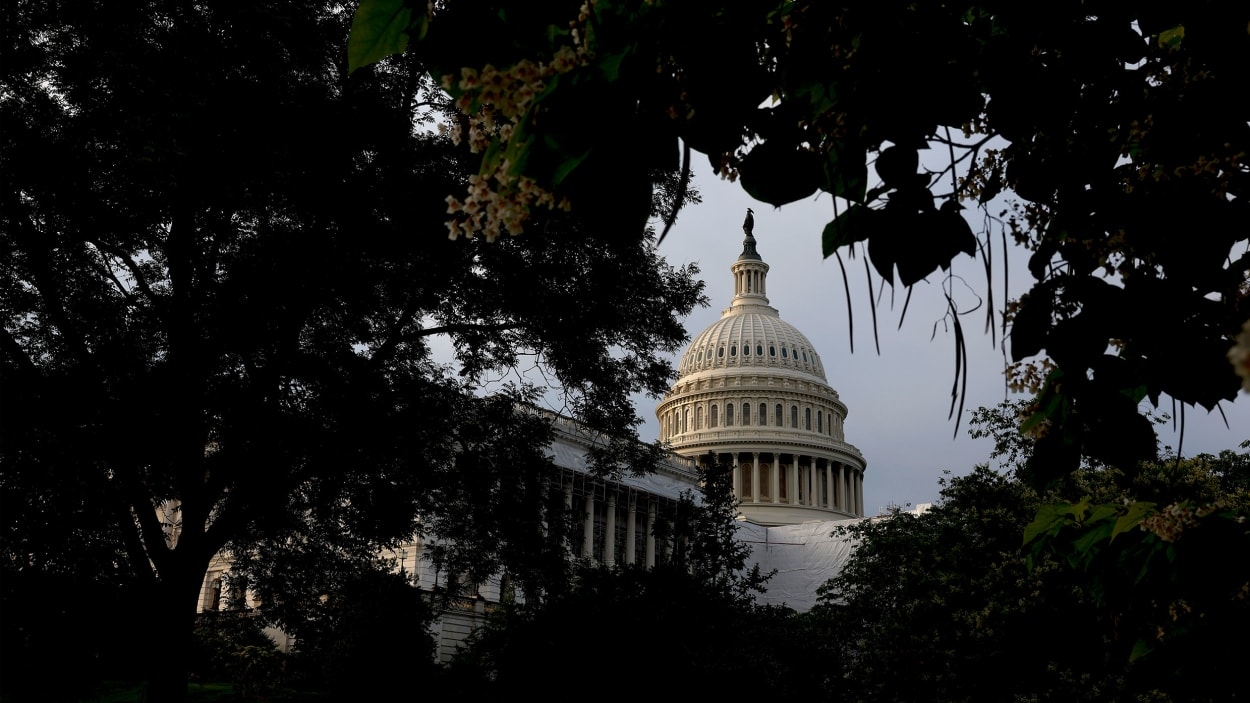As of the time of this writing, many major stocks are up on (June 09, 2023)’s news that a deal to lift the United States debt ceiling has been reached between the Biden administration and House Speaker Kevin McCarthy.
The 99-page piece of legislation is officially called the Fiscal Responsibility Act of 2023, and its provisions reveal that both sides made compromises in an effort to avoid the catastrophic implications of America being unable to pay its bills if the debt ceiling is not raised in the next six days.
Here are the most salient parts of what the legislation allows for:
The next debt limit deadline won’t be until 2025
This is perhaps the only thing both parties are happy about. The legislation raises the debt ceiling until January 1, 2025. As NBC News notes, that means the debt ceiling won’t be a problem either party has to deal with until after the 2024 presidential election is passed. The bill suspends the debt ceiling at $31.4 trillion until then.
Student loan payments start again
If you have student loans that have had their payments suspended since the start of the COVID-19 pandemic, you’ll need to begin making payments on those loans again by the end of the summer.
Some COVID-19 relief funds are rescinded
Speaking of COVID-19, the bill will also see $28 billion of funds previously earmarked for COVID-related spending rescinded. Those fund will be used to fund non-COVID-19 initiatives instead.
An increase in working age for SNAP benefits
People who receive aid though the Supplemental Nutrition Assistance Program (SNAP) will need to work for longer now. As the Wall Street Journal notes, able-bodied adults with no dependents will now need to meet work requirements until they turn 55. Currently the cutoff age is 49.
Reduced IRS funding
Under the bill, $20 billion in Internal Revenue Service (IRS) funding for fiscal years 2024 and 2025 would be repurposed to fund other government initiatives and programs.
Changes to energy permitting
The bill also streamlines the steps needed for environmental reviews of projects, reports CBS News. Now, just a single lead agency will be tasked with reviewing a project’s environmental impact. This could mean that major infrastructure or energy projects can get up and running more quickly. Environmentalists worry that it will also mean the potential environmental impact of a project may not be fully considered.
Despite an agreement between McCarthy and the Biden administration, the Fiscal Responsibility Act of 2023 still need to pass both the House and Senate before President Biden can sign it into law. Most experts agree that the Senate is sure to pass it, but that problems may arise in the House, where McCarthy needs to get the Republican majority to sign onto the deal. Some House Republicans have voiced their concerns that the deal does not go far enough to rein in spending.

If the bill does go to a vote in the House, it will most likely happen this Wednesday. The deadline to raise the nation’s debt ceiling is June 5.
(7)
Report Post








